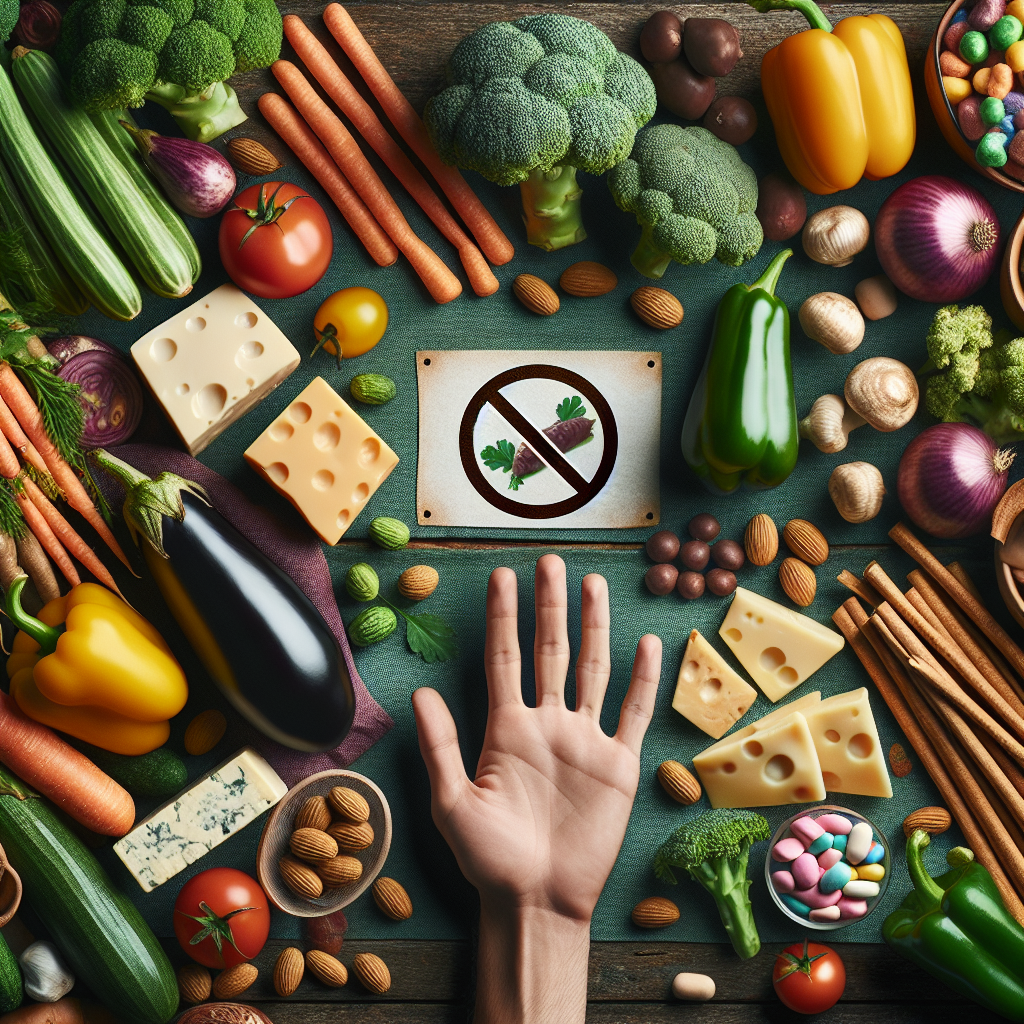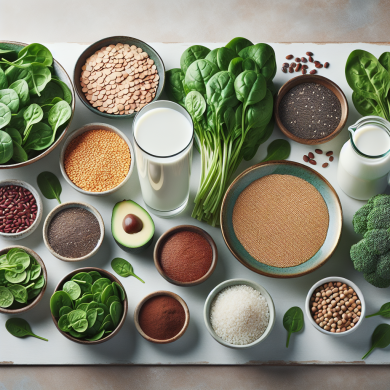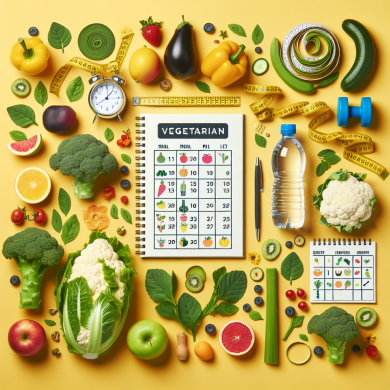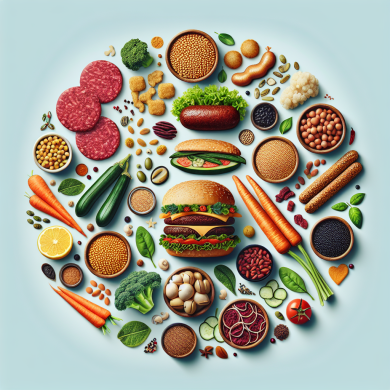Avoiding Pitfalls: Common Vegetarian Diet Mistakes
“`html
Introduction
Adopting a vegetarian diet can provide numerous health benefits, including a lower risk of heart disease, hypertension, type 2 diabetes, and certain cancers. However, transitioning to a vegetarian lifestyle is not without its challenges. Many individuals fall into common pitfalls that can undermine their nutritional intake and overall health. This article explores some of the most frequent mistakes made by those following a vegetarian diet and offers practical advice on how to avoid these pitfalls to maintain a balanced and nutritious lifestyle.
Over-reliance on Processed Foods
One of the most significant mistakes new vegetarians make is substituting meat with highly processed meat alternatives. While convenient, these products often contain high levels of sodium, unhealthy fats, and additives. Though they can be part of a balanced diet, relying too heavily on them can lead to nutritional imbalances.
Solution
Emphasize whole, minimally processed foods in your diet. Incorporate a variety of fresh vegetables, fruits, whole grains, legumes, nuts, and seeds. When choosing meat alternatives, look for those with short ingredient lists and minimal additives. Aim to prepare meals from scratch when possible, allowing you to control the ingredients and nutritional content.
Inadequate Protein Intake
Protein is a crucial macronutrient essential for muscle growth, repair, and overall health. Some vegetarians may struggle to consume enough protein if they rely solely on vegetables and grains, which generally contain lower protein levels than meat.
Solution
Diversify your protein sources. Include a variety of plant-based proteins such as beans, lentils, chickpeas, tofu, tempeh, seitan, quinoa, and edamame. Incorporate nuts and seeds into meals and snacks. Remember that dairy products and eggs are excellent protein sources if you follow a lacto-ovo vegetarian diet.
Ignoring Vitamin B12
Vitamin B12 is vital for nerve function and red blood cell production. Since it is primarily found in animal products, vegetarians, especially vegans, are at risk of deficiency, which can lead to anemia and neurological issues.
Solution
Include B12-fortified foods in your diet, such as fortified plant-based milk, breakfast cereals, and nutritional yeast. Consider taking a B12 supplement, especially if you follow a vegan diet. Regularly check your B12 levels with your healthcare provider to ensure adequate intake.
Insufficient Iron Intake
Iron is a crucial mineral that supports oxygen transport in the blood. Plant-based iron, non-heme iron, is less easily absorbed by the body compared to heme iron found in animal products, putting vegetarians at risk of iron deficiency anemia.
Solution
Consume iron-rich plant foods like lentils, chickpeas, beans, tofu, quinoa, fortified cereals, spinach, and pumpkin seeds. Pair these foods with vitamin C-rich items, such as citrus fruits, strawberries, or bell peppers, to enhance iron absorption. Avoid drinking tea or coffee with meals, as they can inhibit iron absorption.
Overlooking Omega-3 Fatty Acids
Omega-3 fatty acids are essential for brain health and reducing inflammation. While they are most abundant in fish, vegetarians can still obtain them from plant sources.
Solution
Incorporate flaxseeds, chia seeds, hemp seeds, and walnuts into your diet, which are rich in alpha-linolenic acid (ALA), a type of omega-3. Consider taking an algae-based omega-3 supplement to ensure adequate intake of eicosapentaenoic acid (EPA) and docosahexaenoic acid (DHA), which are more potent forms of omega-3.
Neglecting Calcium and Vitamin D
Calcium is critical for bone health, and vitamin D enhances calcium absorption. Vegetarians, especially vegans, may lack these nutrients if they do not consume dairy products.
Solution
Include calcium-rich foods like fortified plant-based milk, tofu set with calcium, fortified orange juice, almonds, and leafy greens such as kale and bok choy. Ensure adequate vitamin D intake through exposure to sunlight and fortified foods. Consider taking a vitamin D supplement, especially during the winter months or if you have limited sun exposure.
Relying on Limited Food Choices
A monotonous diet can lead to nutritional deficiencies and decreased meal satisfaction. Some vegetarians may fall into the trap of eating the same limited foods every day.
Solution
Experiment with new recipes and diverse cuisines to keep meals exciting and nutritionally balanced. Explore different grains like farro, millet, and amaranth. Try various cooking methods and flavors to enhance the dining experience. Joining a vegetarian cooking class or following food blogs can also provide inspiration.
Overconsumption of Refined Carbohydrates
Without careful planning, a vegetarian diet can become high in refined carbohydrates such as white bread, pasta, and pastries, leading to blood sugar spikes and weight gain.
Solution
Opt for whole, unrefined carbohydrates like brown rice, quinoa, oats, and whole-grain bread. Incorporate plenty of vegetables and legumes to maintain a balanced intake of fiber and nutrients. Pay attention to portion sizes and balance your plate with adequate protein and healthy fats.
Skimping on Fiber
While a vegetarian diet is typically high in fiber, some individuals may not consume enough if their diet is centered around refined grains and processed foods.
Solution
Ensure a high fiber intake by consuming a variety of fruits, vegetables, whole grains, legumes, nuts, and seeds. Aim for a daily fiber intake of at least 25 grams for women and 38 grams for men. A high-fiber diet can improve digestion, help manage weight, and reduce the risk of chronic diseases.
Conclusion
Adopting a vegetarian diet can be a rewarding choice for both personal health and environmental sustainability. However, it requires thoughtful planning to ensure nutritional adequacy and avoid common pitfalls. By focusing on a diverse and balanced intake of whole foods, paying attention to key nutrients, and being mindful of portion sizes, vegetarians can enjoy a healthy and fulfilling diet. Regular check-ins with a healthcare provider or a registered dietitian can also provide personalized guidance and support on this journey. With the right strategies, a vegetarian lifestyle can be both nourishing and enjoyable.
“`















Add comment